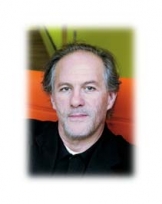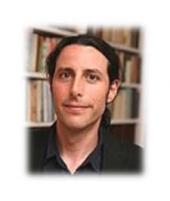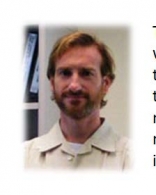Seed Grants Program
The Center for Nanotechnology in Society at UCSB, a National Science Foundation (NSF) national center that advances understanding of the relationships between technological innovation and societal change, announces the award of four new faculty seed grants under the new program Seed Grants on Societal Issues for New Technologies. The aim of this program is to generate new research and/or engagement projects that will involve new faculty participants in, and further the mission of the CNS. The four Seed Grant recipients were awarded funds up to $60,000 for 12‐month projects.
The second round awardees are:
Driving Development: the Lithium Trade in Bolivia, Argentina and Chile
Javiera Barandiarán , Assistant Professor – Global & International Studies, UCSB
In the high Andes between these countries are found the world’s largest lithium reserves. This project investigates how Bolivia, Argentina and Chile are participating in the creation and deployment of an emerging technology: lithium batteries, used in electric vehicles, laptops, mobile phones, MP3s, and energy storage for solar power plants. This project will contribute to CNS IRG2 research on Latin American development.
Theorizing the Underlying Cognitive Mechanisms of Upstream Public Deliberation: Neuroscience, Identity Formations & Unconscious Bias
Edwina Barvosa, Associate Professor – Chicano Studies and Feminist Studies
CNS IRG3 research shows that public deliberation can be an effective means for the critical consideration of science governance policies. This research extends our knowledge of public deliberation by theorizing the underlying cognitive mechanisms operating in carefully staged deliberation practices. Scrutinizing these mechanisms may further reveal how public deliberation can serve to disrupt unconscious bias—a factor increasingly recognized as an obstacle to just and evidence-based policymaking in science governance and beyond.
Democratization of Creativity and the Growth of Inequality in 19th-Century America: Explaining the Origins of America's 21st-Century Economy
John Majewski, Professor – Department of History
A large part of this book-length project documents the processes which first produced widespread economic creativity and technological change. The explosion in patenting before the Civil War, for example, is a complicated story, involving the rise of markets and economic incentives, the expansion of public education, the dissemination of knowledge through libraries and other civic institutions, and the growth of “habits of mind” that emphasized curiosity and valorized innovation. This seed grant will contribute to CNS IRG 1 on the history of innovation.
Does the US Nanotechnology Sector Suffer a Skills Gap?
Aashish Mehta, Professor – Global & International Studies
This project will investigate whether there is an unmet demand for highly skilled STEM workers in the nanotechnology sector, and, if so, what the missing skills are. This will help to shed light on the existence of a skills gap, and also on why technology professionals and social scientists disagree about this. Existing nationally representative datasets do not provide adequate information to answer these questions because they do not provide detailed measures of the skills workers possess, where/how they acquired them, or what skills employers are looking for. This project will contribute to IRG 2 on workplace effects of emerging technologies.
The first round awardees and projects were:
Characterization of uncertainties in the life cycle assessments and risk assessments of nanotechnology
Sarah Anderson, Assistant Professor – Environmental Politics, Bren School of Environmental Science and Mgmt
 Transparent communication of uncertainty helps to facilitate public trust in the motives of regulators and scientists. Scientific assessments of nanotechnology serve as the basis for mass media accounts of risk and benefits, yet little is known about how uncertainty is characterized as part of these assessments. This project characterizes the location, nature, and level of uncertainty in existing life cycle assessments and risk assessments on nanotechnology and in the mass media. This seed grant will contribute to CNS IRG 3 on Risk Perception.
Transparent communication of uncertainty helps to facilitate public trust in the motives of regulators and scientists. Scientific assessments of nanotechnology serve as the basis for mass media accounts of risk and benefits, yet little is known about how uncertainty is characterized as part of these assessments. This project characterizes the location, nature, and level of uncertainty in existing life cycle assessments and risk assessments on nanotechnology and in the mass media. This seed grant will contribute to CNS IRG 3 on Risk Perception.
Bringing Science to Life: CNS Engagement Seed Grant
George Legrady, Professor – Media Arts and Technology, Colleges of L&S & Engineering
 This project positions scientific research into the public domain by transforming the museum into a living lab, allowing the public to see the methods and processes by which scientists develop their work. The project will feature 5 to 10 UCSB Lab‐based scientific projects that will use this opportunity to engage the public to contribute to the research in direct and tangential ways. Each sub‐theme will be assigned to one or more scientific research project, and be situated in contrast, comparison, or collaboration with one or more artistic research work, or a scientist and artist may decide to explore a particular theme together. This seed grant will contribute to the Public Outreach and Engagement program at CNS.
This project positions scientific research into the public domain by transforming the museum into a living lab, allowing the public to see the methods and processes by which scientists develop their work. The project will feature 5 to 10 UCSB Lab‐based scientific projects that will use this opportunity to engage the public to contribute to the research in direct and tangential ways. Each sub‐theme will be assigned to one or more scientific research project, and be situated in contrast, comparison, or collaboration with one or more artistic research work, or a scientist and artist may decide to explore a particular theme together. This seed grant will contribute to the Public Outreach and Engagement program at CNS.
Public Sentiment and the Performance of Protest in Japan’s Antinuclear Movement
David Novak, Assistant Professor – Music, Division of Humanities & Fine Arts, L&S
 This seed project will conduct ethnographic fieldwork on the perception of risk and responsibility around the use of nuclear power in contemporary Japan, as articulated by the emerging antinuclear protest movement since the Fukushima disaster. In particular, it will document the activities of musicians and artists in Tokyo and Fukushima and analyze the role of music and performance in generating social discourse about the risks of nuclear energy and government responses. This project will work closely with CNS IRG 1 on the contemporary history of new technology.
This seed project will conduct ethnographic fieldwork on the perception of risk and responsibility around the use of nuclear power in contemporary Japan, as articulated by the emerging antinuclear protest movement since the Fukushima disaster. In particular, it will document the activities of musicians and artists in Tokyo and Fukushima and analyze the role of music and performance in generating social discourse about the risks of nuclear energy and government responses. This project will work closely with CNS IRG 1 on the contemporary history of new technology.
Filtering out the Social: Nanotechnology and Water Treatment in Mexico
Casey Walsh, Associate Professor – Anthropology, Division of Social Sciences, L&S
 This project investigates the role of nanotechnology in infrastructures that manage water quality in Mexico. Faced with serious contamination problems in both surface and subsoil water sources, and extreme economic and technical difficulties in assuring water quality through conventional means, water service providers have placed their hopes on new technologies that 1) treat water at a much smaller (micro and nano) scale, and 2) treat water much closer to the point of consumption. Research will focus on a landfill in Tlaquepaque, Jalisco, where nanotech is being used to purify leachate. The project will contribute to CNS IRG 2’s work on nanotechnology innovation and globalization in Mexico and Latin America.
This project investigates the role of nanotechnology in infrastructures that manage water quality in Mexico. Faced with serious contamination problems in both surface and subsoil water sources, and extreme economic and technical difficulties in assuring water quality through conventional means, water service providers have placed their hopes on new technologies that 1) treat water at a much smaller (micro and nano) scale, and 2) treat water much closer to the point of consumption. Research will focus on a landfill in Tlaquepaque, Jalisco, where nanotech is being used to purify leachate. The project will contribute to CNS IRG 2’s work on nanotechnology innovation and globalization in Mexico and Latin America.
CNS 2014 Seed Grant Program Announcement FINAL.doc
CNS 2014 Seed Grant Program Announcement FINAL.pdf










